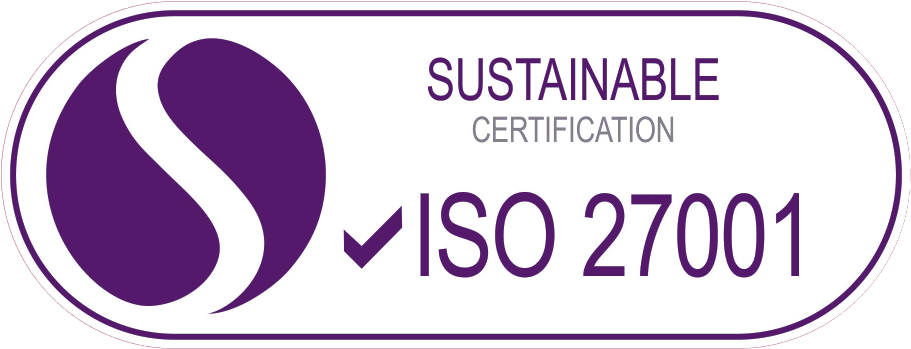Many Australian students in higher education programs such as university use HECS-HELP to pay for their studies. HECS is a non-interest loan provided from the Australian Government that is subject to indexation.
If you are a higher education student with HECS debt, this blog is for you. In this article we will be answering what is indexation, what is HECS indexation, and when should you pay down your HECS debt.
HECS debt and student loans
The 2024 Federal Budget did provide some small benefit to students, but we see it more as righting a historic wrong.
What changed for students?
Students or ex-students with HECS / HELP debts, VET student loans, Australian Apprenticeship Support Loans benefited from the 2024 federal budget. Student loans will have debts reduced with changes to indexation.
The new indexation rules will use the lower of either the Consumer Price Index (CPI) or the Wage Price Index. This will be backdated to July 2023 which is very meaningful for those with a HECS debt or other student loan debt.
For the last indexation period this means that HECS loans and other student loans will grow at the lower wage index rate of 3.2% rather than a 7.1% inflation rate.
Example of HECS changes
As an example if you had a HECS debt or other student loan debt of $25,000, the expected interest reduction will be $1,120.
In summary
The new indexation rules in the 2024 Federal Budget will now use the lower of either CPI or the Wage Price Index to ensure fairness in indexing of HECS debt and other student loans. This change will be backdated to July 2023.
This will ease the pressure on young people who may aspire to save for a first home, but will have little immediate impact.
If you’re a student, the future you is getting a benefit here!
What is indexation?
Indexation is the process of adjusting the price, wage, or value of something based on the changes of a specific measure such as inflation. Indexation is used to negate the effects of a specific measure like inflation, so the value of the item remains the same in reference to the value of money year to year.
For example, a company may have a wage indexation policy that increases your wage to keep up with the cost of living.
Indexation and HECS
Now we know what indexation is, but what is HECS indexation? HECS loans do not incur interest, although they are indexed against inflation or the wage price index, whichever is lower. The indexation is applied on June 1 every year.
As an example for 2023, the inflation rate was predicted to be around 7.1%. and the wage price index 3.2%. For a student with a $25,000 HECS loan, that is $1,775 if you use the inflation rate for indexation, or only $1,120 if you use the wage price index. This amount would be added on come June. The debts are only indexed if they are older than 11 months old.
Although the indexation rate was particularly high in 2023 and the wage price index was used in place. The rates in the previous years have been significantly lower. Below are the indexation rates by year and the expected loan balance increase on a $25,000 loan.
- 2024: 4.7% ($1,175)
- 2023: wage price index 3.2% ($1,120)
- 2022: 3.9% ($975)
- 2021: 0.6% ($150)
- 2020: 1.8% ($450)
- 2019: 1.8% ($450)
2023 is an outlier due to the changes to in the 2024 federal budget which will use the wage price index. If a student had a loan of $25,000 in 2023, their loan balance would increase to $26,120. Similarly, a student with a $25,000 loan back in 2019 would have only seen their balance increase to $25,450.
Indexation is generally seen as a good thing as students can save more money than if they paid interest on their loan. Problems arise in high inflationary times like we’re seeing this year that see students potentially paying thousands more on their student loans than we’re used to seeing.
Paying down your HECS-HELP
The indexation rate, the rate the loan balance increases, and the repayment rate, the rate that you repay the loan balance, are two different things that should not be confused. Repayment rates are based on your income. The repayment rate is the per cent of income you will need to contribute for your HECS loan. The HECS repayment rates are detailed below:
| 2023-2024 Repayment threshold | 2024-2025 Repayment threshold | Repayment % rate |
| Below $51,550 | Below $54,435 | Nil |
| $51,550 – $59,518 | $54,435-$62,850 | 1.0% |
| $59,519 – $63,089 | $62,851-$66,620 | 2.0% |
| $63,090 – $66,875 | $66,621-$70,618 | 2.5% |
| $66,876 – $70,888 | $70,619-$74,855 | 3.0% |
| $70,889 – $75,140 | $74,856-$79,346 | 3.5% |
| $75,141 – $79,649 | $79,347-$84,107 | 4.0% |
| $79,650 – $84,429 | $84,108-$89,154 | 4.5% |
| $84,430 – $89,494 | $89,155-$94,503 | 5.0% |
| $89,495 – $94,865 | $94,504-$100,174 | 5.5% |
| $94,866 – $100,557 | $100,175-$106,185 | 6.0% |
| $100,558 – $106,590 | $106,186-$112,556 | 6.5% |
| $106,591 – $112,985 | $112,557-$119,309 | 7.0% |
| $112,986 – $119,764 | $119,310-$126,467 | 7.5% |
| $119,765 – $126,950 | $126,468-$134,056 | 8.0% |
| $126,951 – $134,568 | $134,057-$142,100 | 8.5% |
| $134,569 – $142,642 | $142,101-$150,626 | 9.0% |
| $142,643 – $151,200 | $150,627-$159,663 | 9.5% |
| $151,201 and above | $159,664 and above | 10.0% |
For example, in 2023-24 if you are making $85,000 per year, you will be required to pay 5% of your income to pay down your HECS-HELP debt. That means you are required to pay $4,250 for the year. If you would like to calculate your own HECS-HELP debt repayments, check out our HECS calculator.
If you earn below the repayment threshold, you are not required to pay down any of the student loan. Unless the Australian Government changes its rules, you may never be required to pay down your student debt if you continue to earn under the repayment threshold each year. HECS debt is not passed on to your estate. That means when you pass away your debt end with you!
Tactics for reducing your HECS debt
Making a payment in May each year to reduce the value of the HECS debt that is being indexed on June 1 will save you money.
Should you pay down your HECS debt before 1 June? The truth is it depends on your own situation. Your student debt is also repaid by the ATO when completing your tax return in July. By paying before June 1st, you can avoid paying the indexed inflation. But it means you’ll be paying down the HECS debt again in July when you lodge your tax return.
What debts should I repay first?
Paying down debts such as credit cards or personal loans may be a better option than paying down your student loans due to the higher interest rates that a financial institution will charge you on this type of debt. If you have financial goals like purchasing a home, paying down your student debts may be less of a priority. A person with more disposable income and no need for money in the short term may want to repay more of their HECS-HELP debt to reduce the effects of indexation.
If you would like to learn how you can pay your HECS-HELP debt down quickly, click here.
HECS-HELP system is an excellent system for providing student debt to assist people with their studies. Catch is that it does have to be repaid at some stage! It is repaid in line with how much you earn meaning the more you earn, the more you repay. Each year the debt is indexed on the 1st of June based on inflation.
One Click can help with your tax!
One Click Life makes it simple to track and organise all your life’s admin in a single place. A free account with One Click Life allows you to view HECS balance online.
Dealing with an online tax agent is the simplest way to complete your tax return. Why wouldn’t you use an online tax agent if your fees and online tax return are tax deductible? One Click Life does more than tax! One Click Life can help with your Mortgage, Will, and Health Insurance, so you can spend time on things that matter to you.


